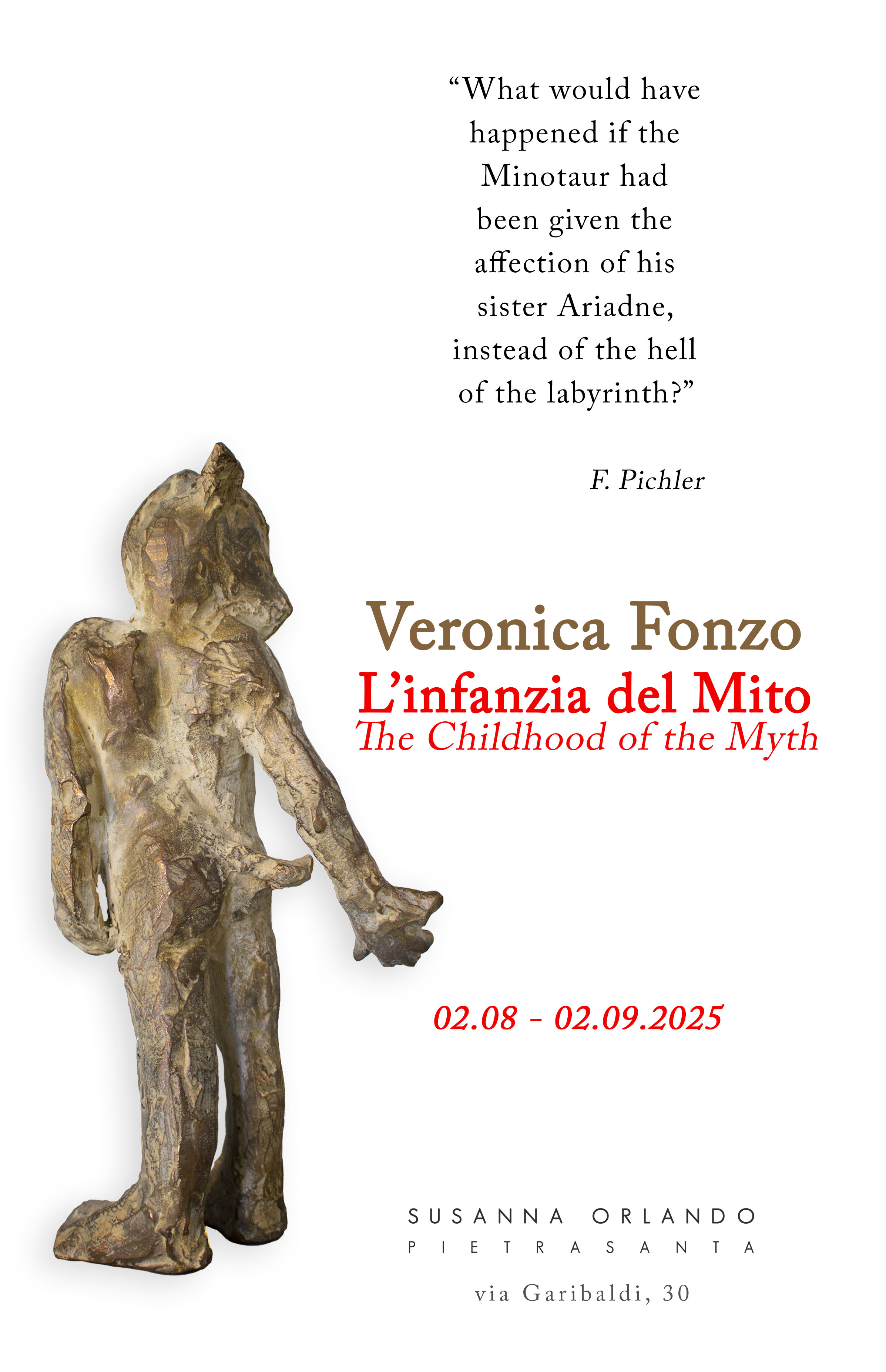02.08 - 02.09.2025
Veronica Fonzo

The Childhood of Myth
by F. Pichler
Pygmalion was a sculptor. The myth tells that, falling in love with his female sculpture, he devoted his days to lavishing love on the bare stone. Eventually, his perseverance blossomed into a miracle: Venus, moved by pity, transformed the stone into flesh and soul. The statue became a woman, finally capable of responding to such passion.
In psychology, there is the Pygmalion effect: an approach that explains the logic behind every "self-fulfilling prophecy." The expectations we have for another person influence their actions and performance. If we believe in a child and inspire trust, their chances of success will significantly increase. Conversely, a negative attitude will obscurely influence their results.
When a story closes, when a biography ends, it seems as if the fate imprinted upon it was inevitable. But in the first pages of every life, any ending can still be written: childhood is that moment when fortune has not yet cast its magic dice. Everything is still possible.
What would have happened if the Minotaur had been given the affection of his sister Ariadne, instead of the hell of the labyrinth? What if he had received the company of his family, and not the devastating loneliness? Would he have become the monster described in the myth, or a radiant hero?
Veronica Fonzo imagines the meeting between the Minotaur and his sister: two infants free of fear and prejudice, who tell us a story of hope. They hold hands, attentive to what unites them, ignoring what separates them. Julio Cortázar speculates that Ariadne's thread, given to Theseus, was actually intended for the Minotaur, her brother, to allow him to escape from captivity: a love story that never came to pass.
Veronica Fonzo plays with possibilities that never came to pass. She imagines other endings, destinies never written. Because every child is a myth yet to be told. Childhood is always a hope that blossoms into happiness... if man does not trample on it or abandon it in the pain of orphanhood.
The fate of Narcissus—cruel to all and a victim of his own blinding beauty—would have been different if a Goddess had guided his first steps, distancing him from his suicidal egocentrism. What could the most beautiful man in myth have taught us about grace itself, had he not drowned in his own madness?
The myths we know are finished stories, their verdict final. But there are still many myths to be written. Every child born still has his own destiny to tell. And it is up to us, the silent and spectating audience, to interpret those lives in the right way, accompanying them towards beauty and happiness.
Pietrasanta, August 2, 2025
Via Stagio Stagi 12 and via Garibaldi 30, Pietrasanta (Lucca) Italy. Telephone +39 0584 70214
C.F. RLNSNN59A61D612N
P.IVA 01492370463